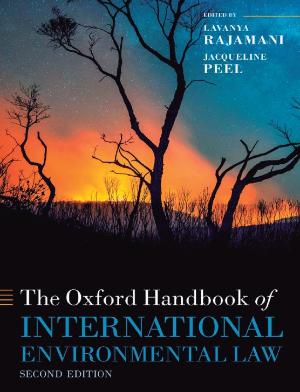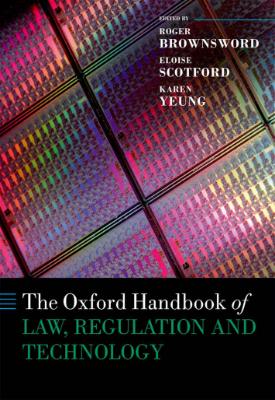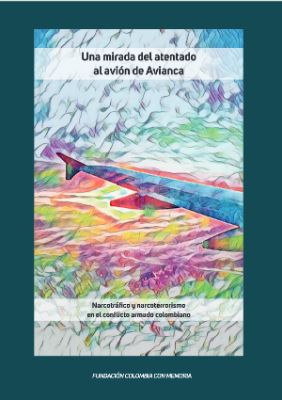
|
The Oxford Handbook of Law and Humanities
How does materiality matter to legal scholarship? What can affect studies offer to legal scholars? What are the connections among visual studies, art history, and the knowledge and experience of law? What can the disciplines of book history, digital humanities, performance studies, disability studies, and post-colonial studies contribute to contemporary and historical understandings of law? These are only some of the important questions addressed in this wide-ranging collection of law and humanities scholarship.
Collecting 45 new essays by leading international scholars, The Oxford Handbook of Law and Humanities showcases the work of law and humanities across disciplines, addressing methods, concepts and themes, genres, and areas of the law. The essays explore under-researched domains such as comics, videos, police files, form contracts, and paratexts, and shed new light on traditional topics, such as free speech, intellectual property, international law, indigenous peoples, immigration, evidence, and human rights. The Handbook provides an exciting new agenda for scholarship in law and humanities, and will be essential reading for anyone interested in the intersections of law and humanistic inquiry.
|

|
The Oxford Handbook of International Environmental Law
The second edition of this leading reference work provides a comprehensive discussion of the dynamic and important field of international law concerned with environmental protection. It is edited by globally-recognised international environmental law scholars, Professor Lavanya Rajamani and Professor Jacqueline Peel, and features 67 chapters authored by 76 renowned experts in their fields.
The Handbook discusses the key principles underpinning international environmental law, its relevant actors and tools, and rules applying in its substantive sub-fields such as climate law, oceans law, wildlife and biodiversity law, and hazardous substances regulation. It also explores the intersection of international environmental law with other areas of international law, such as those concerned with trade, investment, disaster, migration, armed conflict, intellectual property, energy, and human rights. The Handbook sets its discussion of international environmental law in the broader interdisciplinary context of developments in science, ethics, politics and economics, which inform the way in which environmental rules are made, implemented, and enforced. It provides an introduction to the foundations of international environmental law while also engaging with questions at the frontiers of research, teaching, and practice in the field, including the role of Global South perspectives, the contribution made by Earth jurisprudence, and the growing role of a diverse range of actors from indigenous peoples to business and industry. Like the first edition, this second edition of the Handbook is an essential reference text for all engaged with environmental issues at the international level and the applicable governance and regulatory structures.
|
|

|
The Oxford Handbook of Law, Regulation, and Technology
This book brings together leading scholars from law and other disciplines to explore the relationship between law, technological innovation, and regulatory governance. It is organized into five parts. Part I provides an overview of the volume, identifies its aims, explains its organization, locates it within existing scholarship, and identifies major themes that emerge from the individual chapter contributions. Part II examines core normative values that are implicated or affected by technological developments and which recur in attempts to ground the legitimacy of emerging technologies within liberal democratic societies. Part III focuses on the challenges that technological development poses for law, legal doctrine, and legal institutions, and the constraints that these legal frameworks pose for the development of technologies. Part IV provides a critical exploration of the implications for regulatory governance of technological development, and considers both attempts to regulate new technologies (typically with the aim of managing risks associated with their emergence while seeking to promote their potential benefits) and the way in which new technologies may be utilized as instruments of regulatory governance with the aim of restraining and managing social risks. Part V explores the interface between law, regulatory governance, and emerging technologies in specific policy sectors, namely: medicine and health; population, reproduction, and the family; trade and commerce; public security; communications, media and culture; and food, water, energy, and the environment.
|
|
|

|
The Oxford Handbook of Terrorism
The Oxford Handbook of Terrorism systematically integrates the substantial body of scholarship on terrorism and counterterrorism before and after 9/11. In doing so, it introduces scholars and practitioners to state of the art approaches, methods, and issues in studying and teaching these vital phenomena. This Handbook goes further than most existing collections by giving structure and direction to the fast-growing but somewhat disjointed field of terrorism studies.
The volume locates terrorism within the wider spectrum of political violence instead of engaging in the widespread tendency towards treating terrorism as an exceptional act. Moreover, the volume makes a case for studying terrorism within its socio-historical context. Finally, the volume addresses the critique that the study of terrorism suffers from lack of theory by reviewing and extending the theoretical insights contributed by several fields - including political science, political economy, history, sociology, anthropology, criminology, law, geography, and psychology. In doing so, the volume showcases the analytical advancements and reflects on the challenges that remain since the emergence of the field in the early 1970
|
|
|
2020 Human development perspectives: Tackling social norms. A game changer for gender inequalities
Gender disparities are a persistent form of inequality in every country.1 Despite remarkable progress in some areas, no country in the world— rich or poor— has achieved gender equality. All too often, women and girls are discriminated against in health, in education, at home and in the labour market— with negative repercussions for their freedoms.
This is the time for a reality check. The commemoration of the 25th anniversary of the adoption of the Beijing Declaration and Platform for Action (Beijing+25) provides an opportunity to reassess the path to gender equality and adjust actions to close gender gaps.
|
|
|

|
Una mirada del atentado al avión de Avianca: Narcotráfico y narcoterrorismo en el conflicto armado colombiano
El presente informe es el resultado de más de un año de investigación, desarrollada en dos etapas: una inicial, liderada por la Fundación Colombia con Memoria, y una etapa final que contó con la ayuda del Programa de Apoyo al Sistema de Justicia Transicional de la Embajada de Suecia en Colombia y la Organización Internacional para las Migraciones (OIM), cuyo aporte fue determinante para la profundización de los temas abordados en el documento y para su finalización. Expresamos nuestro agradecimiento a estas dos organizaciones, así como a la Comisión para el Esclarecimiento de la Verdad, la Convivencia y la No Repetición, por permitirnos hacer este proyecto realidad. Esta es, por tanto, una investigación dedicada a todas esas víctimas que, al igual que nosotros, han recorrido el camino de la incertidumbre, la injusticia y la falta de verdad sobre una guerra desatada por los carteles de la drogacontra el Estado. Esperamos que este trabajo sirva para mirar hacia atrás y reflexionar sobre el papel que tuvo el narcotráfico y el narcoterrorismo en el marco del conflicto armado en Colombia.
|
|
|
|
|